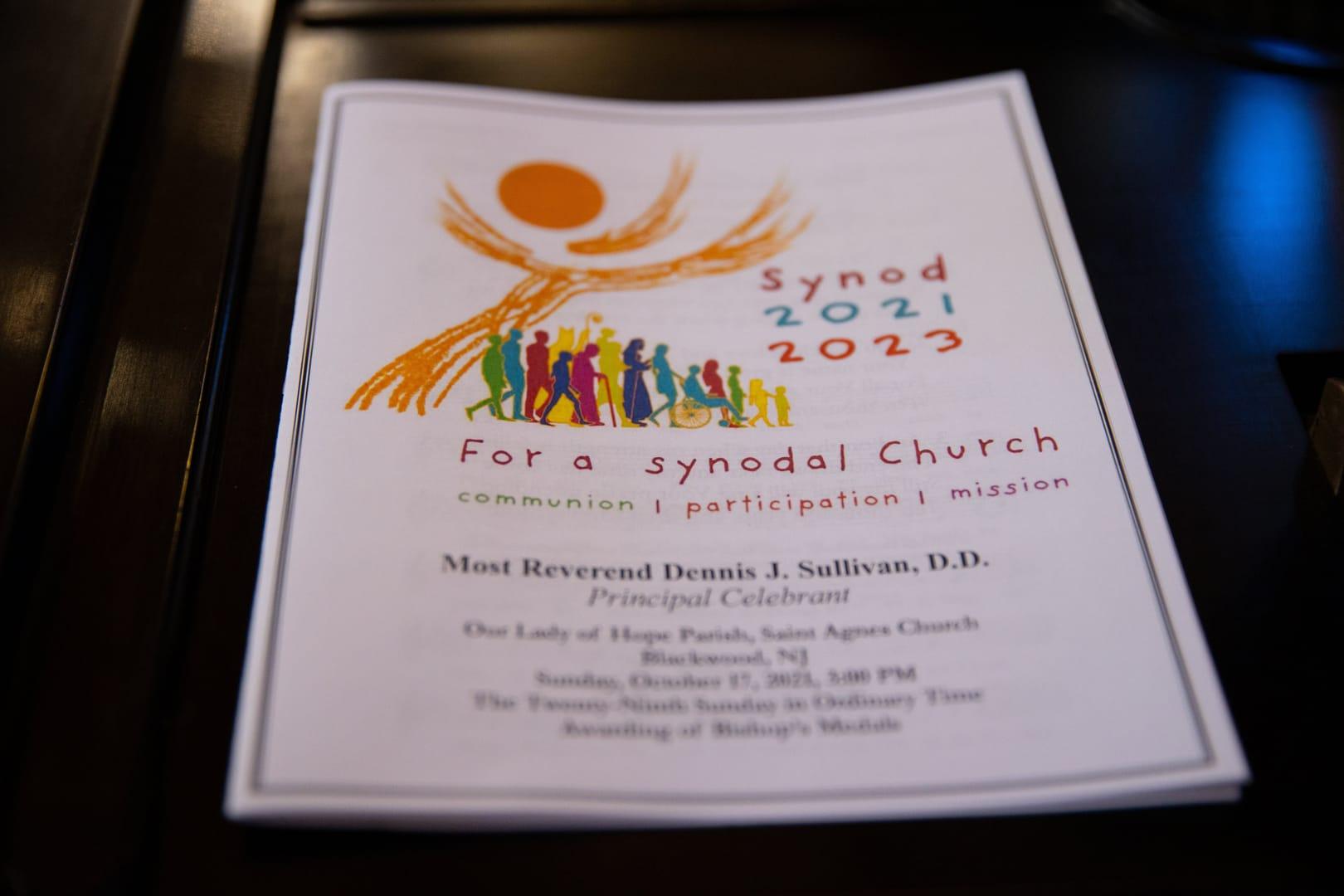NEW YORK – While the U.S. Bishops as a whole gear up for the continental phase of the Synod on Synodality, the lone bishop of Arkansas is maintaining a diocesan focus as well, recently announcing his plan to continue the process at the local level.
Bishop Anthony Taylor of Little Rock on Dec. 1 published a “Post-Synod Response” to the faithful, providing questions for synod discussions to continue while diocesan leaders meet to discuss how to implement recommendations from the local phase.
Taylor likened the purpose of the 16-page document to that of an apostolic exhortation.
“The reason apostolic exhortations are called ‘exhortations’ is that they focus on the future, on what is to be done next, and the same is true for this concluding document for the Diocese of Little Rock,” Taylor said. “Based on what we have learned, we look to see what we can do next.”
One challenge may be participation. The document reveals that less than half – 43 percent – of diocesan parishes participated in the local phase of the synod. Taylor told Crux on Dec. 5 that he “would have liked 100 percent participation,” but the logistics of the diocese were a challenge with 130 parishes, “many of which are very small and without a resident priest.”
Taylor added that he believes the largest parishes participated, and that there was an online questionnaire made available to all parishioners, including those from parishes that didn’t participate. Regardless, he said part of the process now will be how to include everyone.
“Part of the reason for my post-synod response is to begin to consider the next steps based on what surfaced in the synod, and any consideration of next steps would necessarily need to continue to engage the relevant parties,” Taylor told Crux in an email.
“My post-synod response includes discussion questions because, given the principle of subsidiarity, many of the matters that surfaced need to be discussed and addressed on the parish level – and this is not only in the 43 percent of parishes that participated in the initial process,” he said.
An initial effort in increasing participation happened at Sunday Masses this past weekend, where printed copies of the post-synod response were distributed at every diocesan parish. Every copy was taken, Taylor said, so they will redistribute the document in the coming weeks.
The document itself is both an explainer of what the synod process is – when it started and what’s happened, where it’s going, and its purpose – and a refresher of the results of the local phase that ran from October, 2021, through this past spring.
Like most dioceses, the Diocese of Little Rock carried out the local phase of the synod through parish listening sessions, one-on-one conversations, online questionnaires, and listening sessions with specific populations within the diocese. Those results were previously outlined in a diocesan synthesis report that went to the United States Conference of Catholic Bishops.
The post-synod response highlights 11 major themes that emerged from that process that also aligns with feedback received by dioceses nationwide:
- Community/fellowship
- Youth and young adult faith formation
- Desire for the faith to be taught from the pulpit
- Need for Catholic support groups
- Need for priest presence, accountability, transparency, trust and communication
- Perception that the Church engages politically
- Rigidity of Church law, especially regarding divorce and annulment
- Judgment versus love
- LGBTQ issues
- Rural parishes feel abandoned
- Role of women
Taylor, in the document, divides the 11 themes into three subsections that include a description and list of discussion questions. Those subsections are “the three topics about which Pope Francis has requested input by means of the synod”: Communion, participation and mission.
The goal is to keep parish discussions alive while diocesan leaders discern next steps. Taylor explains in the document that the Diocese of Little Rock Presbyteral Council will discuss the 11 themes “one by one” at their monthly meeting over the next year or so, and the Diocesan Pastoral Council will discuss these themes at their quarterly meetings.
“In the meantime, I have produced this document to give you a sense of the issues that have surfaced in this synodal process in Arkansas and to enlist your commitment to helping address these issues on the parish level,” Taylor said.
As for the categories, within the communion category are the themes relating to greater support, community, fellowship and inclusivity. Participation focused largely on the priests and the need for them to be present, communicative, accountable and trustworthy, as well as the importance of women religious and lay leadership roles.
Mission focused on youth and young adult formation, the church engaging politically, and a desire within the diocese for more opportunities for spiritual growth. Responding to that desire, Taylor announced in the document the establishment of a new shrine of Divine Mercy to be inaugurated next spring on the feast of Corpus Christi. It will be at St. Edward Parish in Little Rock and it will serve as a “place of pilgrimage, adoration and reconciliation,” he said.
The bishop said that his hope for this continued process is for “our local church to become more ‘synodal’ in everything we do.”
“The Synod on Synodality was called to create a dialogue whereby the issues raised in the course of our conversations could surface and then be addressed, which is our task in the coming years,” Taylor said. “But beyond the specific concerns raised, the ultimate goal was to model and foster a new, more consultative way of doing things.”
Follow John Lavenburg on Twitter: @johnlavenburg













